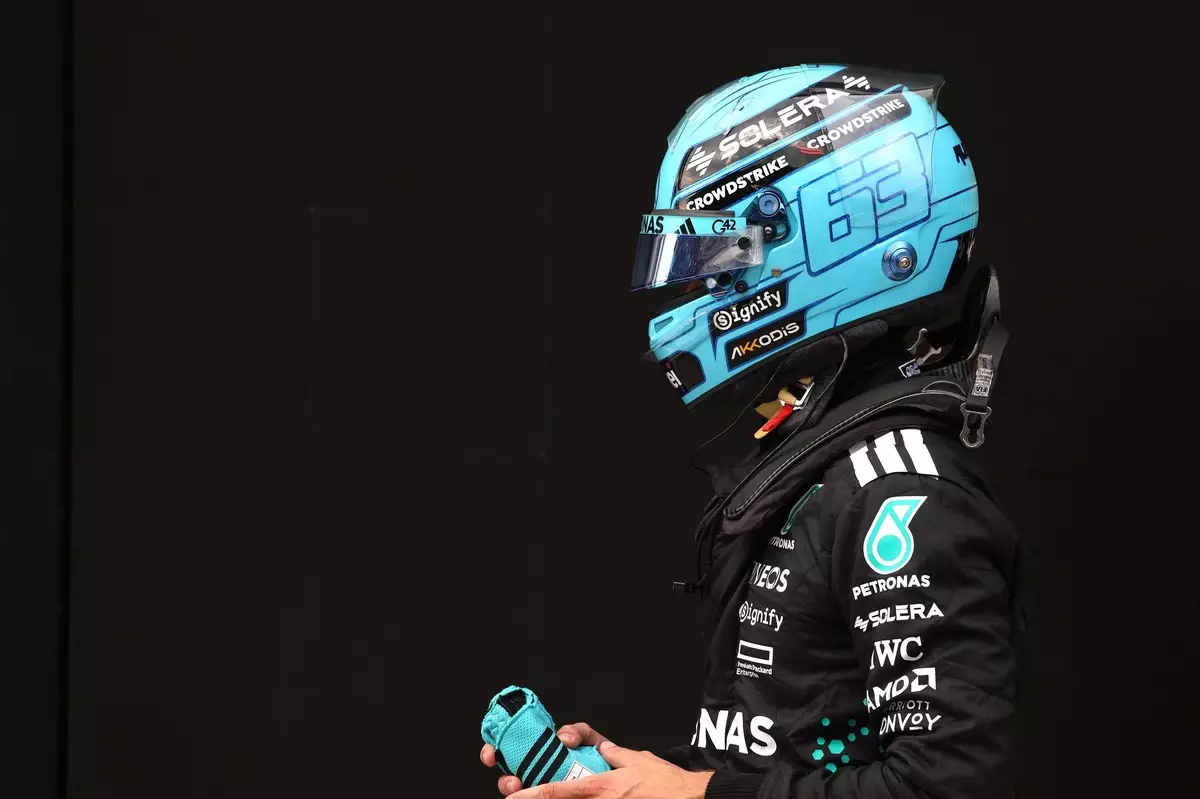In the high-stakes realm of Formula 1, contract negotiations often resemble a high-octane game of chess, filled with strategic moves, sudden surprises, and immense pressure. Yet, George Russell’s current stance exemplifies a rare blend of patience and confidence that defies conventional urgency. Rather than succumbing to the natural inclination to finalize deals during the mid-season lull, Russell chooses to prioritize clarity and readiness over haste. This approach champions a mentality that values strategic timing over impulsive decisions, setting a precedent for drivers at all levels who seek to balance their career aspirations with personal well-being.
His decision to delay signing with Mercedes until the right moment underscores a broader shift in athlete mentality—one that emphasizes mental health, strategic planning, and long-term stability. The typical expectation in F1 is to secure contracts amid the busy summer period, often driven by external pressures, media speculation, and the race to remain competitive in negotiations. Russell’s stance challenges this norm, illustrating an evolution where drivers recognize that patience can augment their leverage and set a foundation for future success.
Decoding the Significance of a Calm, Confident Driver
Russell’s decision isn’t merely about avoiding the frenzy of contract talks; it signifies a deeper understanding of his worth and the importance of aligning his career with the right conditions. With Mercedes’ future unclear—especially as regulation changes loom on the horizon—Russell is positioning himself as a thoughtful actor in an unpredictable landscape. His emphasis on “when it will happen” reflects a belief that genuine negotiations, driven by mutual understanding rather than external deadlines, will produce the most beneficial outcome for both sides.
Moreover, his calmness illustrates profound self-awareness. At 27, Russell is at a pivotal point—a driver with experience, yet still hungry for growth and stability. His past performances, including multiple race wins and a maintained consistency, have earned him the respect of team management. Toto Wolff’s comments highlight that Russell’s value to Mercedes is not merely performance-based but rooted in trust and strategic importance. Russell’s approach demonstrates that success isn’t solely measured by a contract extension, but by a deliberate cultivation of a resilient mindset that can navigate the tumultuous waters of F1 negotiations.
The Broader Implications for Formula 1 and Driver Agency
Russell’s stance signals a broader cultural shift within Formula 1—one that champions athlete agency and mental agility. In a sport driven by rapid decision-making and relentless competitiveness, his refusal to rush indicates a desire to reclaim control over career trajectories. Such agency is especially crucial in an environment where teams may have competing interests, sponsors press for quick results, and the overarching uncertainty of regulations creates upheaval.
Furthermore, this moment underscores a potential new template for how young drivers can manage their careers. In previous eras, the whirlwind of contract negotiations often swirled under the radar, leaving drivers little room for personal reflection. Now, Russell’s measured approach advocates for a healthier, more strategic way of conducting these affairs—one that emphasizes confidence, patience, and long-term thinking. As regulation changes threaten to reshape the competitive landscape, drivers who adopt this mindset may find themselves better positioned to adapt and flourish.
In addition, Russell’s actions serve as a reminder that patience can sometimes be a strategic advantage. The sport’s traditional emphasis on speed and decisiveness is balanced here by a nuanced appreciation for timing and clarity. His refusal to be swayed by external hype or internal impatience proves that restraint and deliberate planning can be equally powerful tools in securing a successful future.
By positioning himself as a driver who values thoroughness over haste, Russell is subtly redefining what it means to be a top-tier athlete in modern Formula 1. It’s an approach grounded in confidence, self-awareness, and strategic foresight—traits that could very well become the blueprint for the next generation of drivers seeking to navigate the complex interplay of performance, politics, and personal growth in Formula 1’s ever-evolving landscape.

